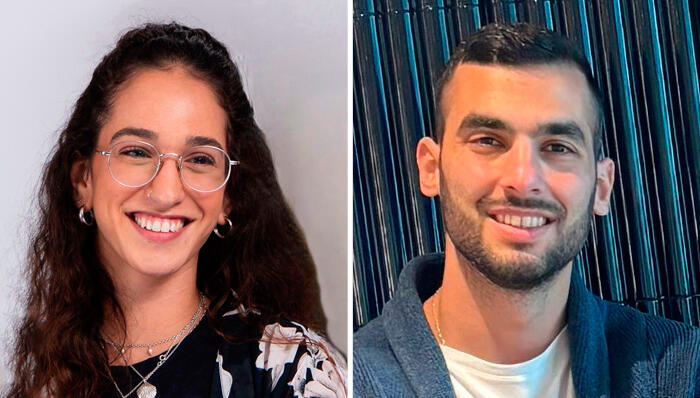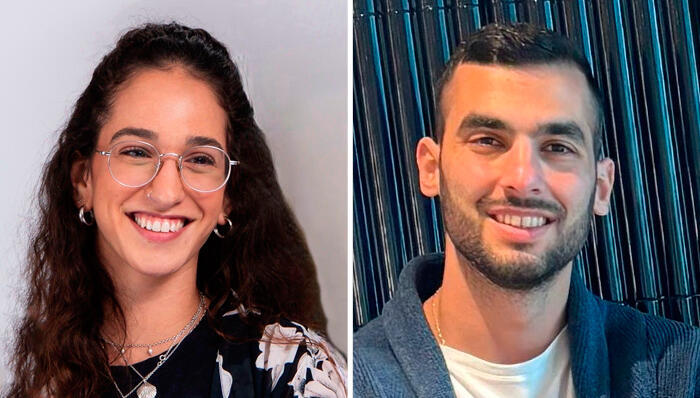
‘I sent out dozens of resumes’: The brutal job market facing tech graduates
With companies prioritizing referrals and AI replacing junior roles, recent graduates are finding few opportunities.
Nave Avraham, a software engineer at Semperis and a Ben-Gurion University graduate with experience from a software company, didn't expect entering the job market in his field to be so difficult. "I sent out dozens of resumes, but each job turned out to be a race against a thousand other candidates," he says. "Today, most jobs are filled through referrals, so when a position is posted on LinkedIn, over a thousand resumes are submitted within an hour. I feel like companies are also changing the requirements for junior positions and are looking for candidates with three years of experience."
For eight months, Avraham searched for a job while working at a software company in the south. "As a graduate with a high GPA and experience in a software company, I thought I would have an advantage, but I realized that wasn't the case. I received countless generic emails informing me that the company had chosen other candidates," he says. Eventually, he was accepted into the Place-IL program, which is designed to open doors for graduates from peripheral areas, and from there, he started working at Semperis as an entry-level software engineer.
Avraham is originally from Nir Oz, and it is important to note that two members of his kibbutz are still in Hamas captivity: Omri Miran and Tsachi Idan. After the evacuation, he and his fiancée decided not to build their home in the Gaza envelope, so they looked for work in the central region. While the Place-IL program was his entry point, university graduates today face an increasingly difficult market. If a degree in computer science or software engineering—especially with high grades—once guaranteed entry into the high-tech industry, today that path is no longer secure. "I see a lot of friends in the market who studied computer science with me and graduated with a degree in software engineering. They are trying desperately to find a job and don't even have a lead. The frustration is immense, leading some to make the wrong decisions. For example, some who studied development end up doing manual software testing just to get into high-tech. Others continue their studies for a master's degree because they couldn't find a job and think that's the solution. Some even make a living from waitressing or working in security because they need to earn money," he says.
Nitsan Koren, a math and computer science graduate from Ben-Gurion University, also searched for a job for almost a year. "There aren't many student jobs available, and there are a lot of computer science graduates looking for work, which creates high competition for every job. It was especially challenging for me because I had no prior experience in the field, unlike other students who might have had experience from military service, for example," she says.
To stand out in a saturated market, Koren participated in a competition organized by the university in collaboration with Google during her second year. She and another student created an app for emotional support and connecting people who had gone through similar difficulties. "I felt the project helped me make my resume stand out, especially since I had no professional experience in the field." Despite this, she made her entry into the job market through a dedicated program at the J.P. Morgan Innovation Center for final-year students. This program teaches skills and knowledge in software development, helping participants build careers in the field. As of today, 27 employees at the company started in this program and have advanced in their roles. "The program allows young students to enter an established, stable company and build a long-term career," says Yaron Oz, GM of the J.P. Morgan Innovation Center.
A degree: No longer an admission ticket
The reality for today's university graduates—even those with good grades and practical degrees such as accounting, business administration, engineering, or computer science—is very challenging. Although technological skills top the World Economic Forum's list of required skills, the same forum's 2025 report emphasizes the need for retraining and upgrading skills to prepare for changes in the next five years. The increasing use of artificial intelligence allows companies to perform tasks previously handled by junior staff without hiring new employees. Mark Zuckerberg, founder and CEO of Meta, has said that this year, the company will replace junior programmers with AI. Similarly, Salesforce CEO Marc Benioff announced that the company would not recruit new software engineers this year due to improved productivity thanks to AI.
In Israel, the situation for university graduates is even more difficult. The country is engaged in the longest war in its history, and the high-tech market has been significantly affected. To cope with the challenges of the period, 47% of companies in Israel are taking steps to streamline and reduce costs, and 35% are making adjustments to human resources and employee management, according to a November survey by the Innovation Authority. The time it takes to fill high-tech positions, whether technological or non-technological, increased in November 2024 compared to April of that year, according to the same survey.
"While it used to be that graduates from less prestigious colleges had trouble entering the high-tech industry, today even those who graduated with honors from leading colleges and major universities are facing difficulties," says Yoav Melamed, an expert in recruiting across various fields and founder of the social enterprise Hi-Tech Jobs and Marketing Without Experience. "I remember that in previous years, the job search process took one to three months. Unfortunately, today, there are cases where graduates who completed their academic obligations long ago are stuck at home for six months or more, settling for jobs unrelated to their education as an interim solution."
According to Melamed, finding a first job in a field of study after graduation has always been challenging, but juniors previously had advantages such as lower salary expectations and higher motivation. This has changed since the war, which has reduced employee recruitment and decreased Israel's exposure to international corporations. Additionally, large local companies have experienced significant layoffs, leaving thousands of experienced workers in long-term unemployment. "As time passes and they must finance mortgages, rent, and possibly raise children, their hunger to work grows, and burnout fades. They are now willing to return for much less money than they were used to," he says.
Training needs to change
The difficulty university graduates face in finding work has also been recognized by universities, especially since October 7th. Dr. Keren Goldfarb, head of the Gesher Academia-Employment Center at Bar-Ilan University, says academic institutions are beginning to understand that they must provide graduates with more practical skills to integrate into the industry. "We see a mismatch between academic training and market needs, so we are developing new programs based on real industry needs. For example, we launched a combined track for product management and technology studies, where graduates not only learn theory but also work on practical projects in collaboration with leading high-tech companies. We also invest in training in areas like data and analytics to provide graduates with a competitive edge." At Bar-Ilan, as at other universities, industry tours are held to meet graduates working at top companies, and there is also training and assistance in resume writing and LinkedIn profile editing. Additionally, universities offer practical skills training to help graduates integrate into high-tech, such as using virtual reality glasses for job interview simulations in English.
While opportunities for university graduates are fewer, some companies are still recruiting for dedicated programs. For example, Israeli AI company Iguazio, acquired by McKinsey, is hiring for various technology positions, including junior roles in QA and back-end development. Fintech startup Panax, which develops an AI platform for finance and treasury teams in large and medium-sized companies, is also recruiting for junior development positions. The company has offices in Tel Aviv and New York. Other companies like Monday, Applied Materials, and BigID are also offering junior positions or programs for recent graduates.















